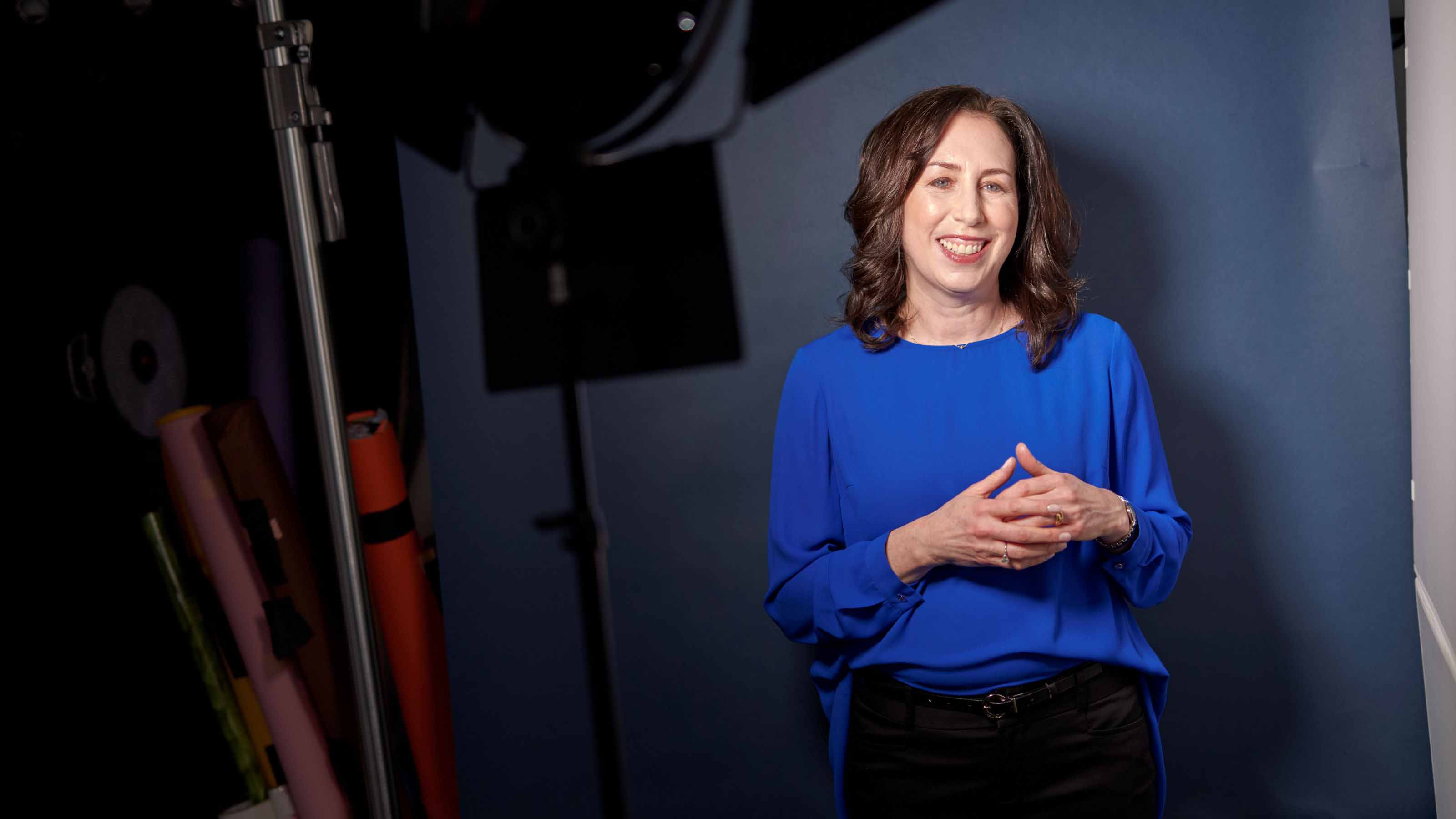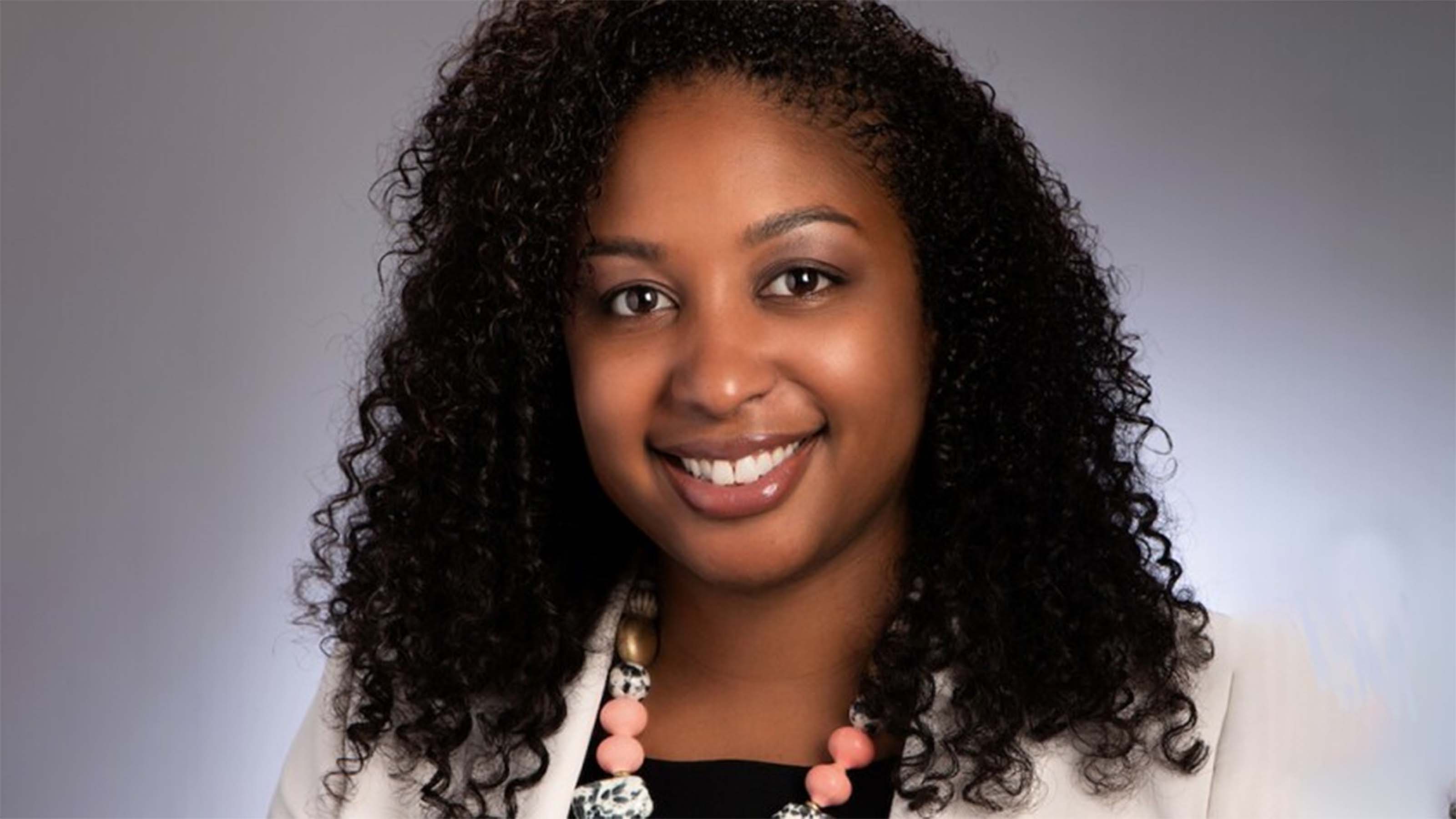Make Better Benefits Decisions During Open Enrollment
Our hosts Sandy Block and Ryan Ermey talk with Jellyvision CEO Amanda Lannert about what to consider when choosing insurance plans during open enrollment. The pair also breaks down money moves to make right now to help prepare for 2020.

Profit and prosper with the best of Kiplinger's advice on investing, taxes, retirement, personal finance and much more. Delivered daily. Enter your email in the box and click Sign Me Up.
You are now subscribed
Your newsletter sign-up was successful
Want to add more newsletters?

Delivered daily
Kiplinger Today
Profit and prosper with the best of Kiplinger's advice on investing, taxes, retirement, personal finance and much more delivered daily. Smart money moves start here.

Sent five days a week
Kiplinger A Step Ahead
Get practical help to make better financial decisions in your everyday life, from spending to savings on top deals.

Delivered daily
Kiplinger Closing Bell
Get today's biggest financial and investing headlines delivered to your inbox every day the U.S. stock market is open.

Sent twice a week
Kiplinger Adviser Intel
Financial pros across the country share best practices and fresh tactics to preserve and grow your wealth.

Delivered weekly
Kiplinger Tax Tips
Trim your federal and state tax bills with practical tax-planning and tax-cutting strategies.

Sent twice a week
Kiplinger Retirement Tips
Your twice-a-week guide to planning and enjoying a financially secure and richly rewarding retirement

Sent bimonthly.
Kiplinger Adviser Angle
Insights for advisers, wealth managers and other financial professionals.

Sent twice a week
Kiplinger Investing Weekly
Your twice-a-week roundup of promising stocks, funds, companies and industries you should consider, ones you should avoid, and why.

Sent weekly for six weeks
Kiplinger Invest for Retirement
Your step-by-step six-part series on how to invest for retirement, from devising a successful strategy to exactly which investments to choose.
Ryan Ermey: Weighing your options during open enrollment season can be like sifting through alphabet soup, but fear not. Jellyvision CEO Amanda Lannert joins the show to separate HGHPs from PPOs, HSAs from FSAs, and much, much more in our main segment. On today's show, Sandy and I give you money moves to make right now and tell you why Thanksgiving sales might be a good deal while student loan relief services are definitely not. That's all ahead on this episode of Your Money's Worth. Stick around.
- Episode Length: 00:32:11
- Links and resources mentioned in this episode
- SUBSCRIBE: Apple Google Play Spotify Overcast RSS
Ryan Ermey: Welcome to Your Money's Worth. I'm Kiplinger's associate editor Ryan Ermey joined as always by senior editor Sandy Block. Sandy, how are you?
Sandy Block: Exhausted, Ryan, but for a good reason because I stayed up to watch the Nats win the world series last night.
From just $107.88 $24.99 for Kiplinger Personal Finance
Become a smarter, better informed investor. Subscribe from just $107.88 $24.99, plus get up to 4 Special Issues

Sign up for Kiplinger’s Free Newsletters
Profit and prosper with the best of expert advice on investing, taxes, retirement, personal finance and more - straight to your e-mail.
Profit and prosper with the best of expert advice - straight to your e-mail.
Ryan Ermey: Yeah. Even I stayed up and watched that out at a bar. And they're not my team as we've discussed before, but who am I to rain on all of our coworkers parade.
Sandy Block: Our parade.
Ryan Ermey: That's right. And there will be a parade, I'm sure. Well, so first a quick congratulations to us, because today is our 50th episode of Your Money's Worth.
Sandy Block: Seems like yesterday, Ryan.
Ryan Ermey: I don't know what ... there's a 50th show anniversary gift that we should be demanding from the press here. Right?
Sandy Block: I'm afraid it's going to be a turkey.
Ryan Ermey: No sapphires? Yeah. We did. For who's listening, there was a grand prize at a inner-office bake off and it happened to be one of the guys who works here has a farm and he has turkeys. So someone got a fully, I believe fully plucked and dressed turkey.
Sandy Block: Well, not yet. Not yet, yeah.
Ryan Ermey: No, no. Right now she's still running around. Although it does not have a name yet.
Sandy Block: Chloe.
Ryan Ermey: Yeah. Chloe. Someone suggested Chloe, but Chloe is getting eaten so we're not naming her. Anyhow, what did we want to talk about on the show? Someone in the comments section on iTunes said they didn't like the coffee talk.
Sandy Block: The coffee talk.
Ryan Ermey: Let's talk Turkey. How about that? What we're talking about is money moves to make now, which is a part of the cover story in the upcoming December issue of Kiplinger's. And the idea is that we want to give you moves to make before the end of the year, but some of them in the list, Sandy and I think should happen even sooner.
Sandy Block: Like right now.
Ryan Ermey: So we wanted to give you an advance notice, do all of this stuff right now. And Sandy, what's the first thing that people should, as soon as they stop listening to this show, go do now?
Sandy Block: That's right. And mine is, I have two. One is check your tax withholding. After the tax overhaul when people filed their taxes for 2018, a lot of people were very unpleasantly surprised with either the smallness of their refund or the size of their bill. And that's because the changes in the tax overhaul kind of threw off their withholding. So there is still time between now and the end of the year. If you think you maybe are not having enough taxes withheld from your check, there's still time to file a new W-4 to have more taken out of your check and avoid a very unpleasant tax bill. And this is something you need to do now because we're running out of paychecks here, but you still could do it. And we'll put it in the show notes, a calculator you can use to figure out if your withholding is on track or you need to have more taken out.
Sandy Block: If you determine that you need to have a lot more taken out and there's not enough paychecks to fix that, there's a solution to that too. You can go to line six on your W-4 and fill in a dollar amount that you'd like to have withheld. So if you calculate and you figure it out and you say, "Oh my God, I'm going to get a huge tax bill next year." There's still time to have more withheld from your paycheck. And this is important. Not just because you don't want to be surprised with a big tax bill, but because of the way our tax system works. If you don't pay enough, even if you square up on April 15th, you'll owe a penalty for not having enough withheld.
Ryan Ermey: Right.
Sandy Block: So this is a good idea. It's a good exercise. Just do a quick check and make sure that you're on track to have enough withheld from your taxes that you don't have to sell your car next April to pay to your tax bills.
Ryan Ermey: Well and so another thing that's sort of happening around the end of the year is that this is a raise and bonus time. And what do we think that people should do with that?
Sandy Block: Put that money in your 401(k) plan. And again, this is something even if you're not going to get a bonus, you may have time depending on how often you're paid and when you're listening to this, there may still be time to increase the amount that's taken out of your paycheck between now and the end of the year and deposit it in your 401(k). Or if you're a gig worker, you have a PSAP or a solo 401(k), there's still time to put more money in it. The maximum for most people who are under 50 in a 401(k) is $19,000. Most people don't even come close to that, but this is one of the few things that you can do between now and the end of the year, especially now when most people don't itemize anymore, that will actually lower your tax bill.
Sandy Block: The money you put in your 401(k) is not going to be taxed. So if you have a little extra money, you can again contact your HR department, ask to have more taken out of your check. If you get a bonus, many companies will let you direct your bonus to your 401(k). So put all or part that money in your 401(k) and when you file your taxes, you'll thank yourself.
Ryan Ermey: And it's a classic piece of financial advice that you're paying yourself first.
Sandy Block: Right.
Ryan Ermey: You're making sure that if you did get a bonus, you did get a raise, that that money's actually going to you and not to your bookie or whatever. So in that vein I wanted to talk about making sure you're using the rewards that you have and using them in a timely manner. I've talked on the show before, my late October birthday is followed by birthdays for my sister, my mom, my dad, my niece plus Christmas for all of them. So if I get any wind fall around now I end up spending it on everyone else. One source of cash or spendable stuff that you may be overlooking are your credit card rewards. A lot of people they have various credit accounts. This is money that you could be using to get hotel deals over the holidays, to find the airline flights.
Ryan Ermey: You can convert them into gift cards. Sometimes directly into retail purchases at Amazon.com or the like. So this might be an untapped source of cash for you to be spending around the holidays when we all need a little bit of extra spending money. And the other thing I wanted to point out is that now is the time to take a vacation and not only take a vacation, but take your vacation days.
Sandy Block: That you've earned.
Ryan Ermey: That you've earned. It's part of your compensation that you get a certain amount of paid time off, but 55% of Americans, and this is according to the US Travel Association who would seem to have some skin in this, but they say 55% of Americans didn't use all of their paid time off in 2018. That's up from 2017. And the average number of unused days was 6.5 days last year. So essentially, well more than a week because there's five days in the working week.
Sandy Block: And some companies let you roll over those days, but others don't.
Ryan Ermey: Right.
Sandy Block: So you don't take those days off, you could lose them. And that is money on the table.
Ryan Ermey: Exactly. So the first thing to do is check your company's policy with HR. Maybe they don't let you roll everything over. Maybe they'll let you roll one week over a year or whatever, but the bottom line is you should use the vacation days that you're allotted and honestly not feel pressure to not take them. I mean, this is like ... We have a personal finance podcast, but like don't let capitalism get to you here. Okay? These are your vacation days. You've earned them.
Sandy Block: And you'll probably be a better worker for taking them.
Ryan Ermey: Right, exactly. You'll be a happier version of yourself. So our advice in the magazine is for less expensive flights and again you're starting now. Concentrate your search on the first two weeks of December. That's going to be cheaper than flying, obviously like the weekend before Christmas. And we suggest, well, Mexico apparently has good deals around this time of year and also we point out that it is the beginning of summer in Australia.
Sandy Block: Oh boy.
Ryan Ermey: Which is, or anywhere in the Southern hemisphere for that matter. So use your vacation days, use your credit card rewards. There's no reason not to use these things that you've earned and while you're at it, make sure you're earning as much as you can and have your withholding in line. We will be talking more about year end money moves as the end of the year approaches, but for now get these things done as soon as you're done listening. Unsure which plan to choose during open enrollment? Don't miss our interview with Amanda Lannert. Next.
Ryan Ermey: We are back and we are here with Amanda Lannert. She is the CEO of Jellyvision and Amanda, the first thing I need to ask is I remember in the '90s I had a computer game that I believe was produced by Jellyvision. That's how I'm familiar with the company. What is the company up to these days?
Amanda Lannert: Well, your memory is excellent and we in fact are one and the same. There are similarities and then complete differences. We are no longer a gaming company and we no longer create virtual game show hosts for B to C Gaming, but we create virtual advisors for a B2B enterprise. We create a people when there's furrowed brow from users, when people are trying to do something complicated and boring but important, our virtual hosts will walk you through it. I'll talk you through it. So now instead of like asking you funny questions on a Friday night, we're now helping people with really serious stuff like benefits, but the idea of simulating a conversation with a user and a computer and the idea of making this star, the user sitting in front of the screen, those are the commonalities that run throughout the business. But it is one in the same.
Ryan Ermey: So yeah, tha game back in the day was You Don't Know Jack, which I believe does still exist. And what we're doing since it is open enrollment season, a lot of people don't know jack about open enrollment. So when people are looking at what's available, what kind of plans are they likely to see during open enrollment? And what's the difference generally between the kinds of plans that they'll see?
Amanda Lannert: Well a lot of people try to see as few plans as possible, so let's like break down what's going on in open enrollment right now. Ford spends more money per car on health insurance than they do steel. And one in four employees would rather clean a toilet than think about benefits, which is why a company who's very good at entertaining got into the benefits space because if you're not paying attention, you can't learn and make a good decision. So we use comedy and gamification techniques to really just get attention so people can learn. Unfortunately what you're going to see this year is what you've seen in a lot of prior years: horribly named products. There is no other industry where you can take a product, name it based on its most terrifying feature, and expect it to be successful ... something called the high deductible plan.
Ryan Ermey: High deductible.
Sandy Block: Yeah, that's right.
Amanda Lannert: That is really about low premiums. You have something called the PPO, which is really about fixed and sort of manageable costs and then you have all kinds of new things you're going to see this year around voluntary benefits. One of the biggest trends we're seeing with employers of all sizes is instead of just bringing medical plans, which help you pay for your health insurance, they're bringing really terribly named things like hospital indemnity, critical illness and accident insurance, pet insurance. Really trying to look at the burden that these ever increasing health premiums are costing for the American family and trying to create ancillary or extra ways of paying for other things related to healthcare or benefits. So there are even more choices awaiting most employees in America for this year's open enrollment.
Sandy Block: What should you be thinking about when deciding which one to choose? What costs should you be looking at?
Amanda Lannert: Yeah. I think there are a couple of things. First, you need to make sure that your plans are covered. The second thing you need to check for is whether there's something called an embedded network where in the most simple way to describe it, it used to just be are you in network or out of network? But now there's in network and in in network and super in network where there are sort of preferred tiers within that network. So just really understanding where are your favorite physicians live within these bands of being in network is important, but the simplest way to break down, perhaps, the difference between a PPO and a high deductible plan is this. The PPO may have and typically does have higher costs for fixed recurring things. Like you pay more on a monthly basis, more is taken out of your check on a monthly basis.
Amanda Lannert: But when you need healthcare, those costs for that doctor visit are lower. A high deductible plan, you pay less on a monthly basis to just be on the plan, but if you actually have costs then you pay more out of pocket. So one of the things you have to think through here are you going to have a lot of costs or a little bit of costs. And one of the biggest things we're being asked to help employees understand his cashflow. If you're looking at say leaving your company halfway through the year, even though the PPO plan may be more expensive on a monthly basis, if you think there's a chance to get sick or fall off your skateboard and break an arm, you may want to be on the PPO plan because you'll hit that deductible. You'll have out of pocket expenses that are higher on the high deductible plan and a PPO could be a great way to sort of manage costs.
Amanda Lannert: You need to think through your physicians, your likely expenses, what could possibly go wrong that's a little extreme, and then whether or not you think you're going to be staying at your employer for the full year. And then one of the reasons we bring this up is in the talent economy with unemployment being as low as it is right now, we're seeing a lot more employee turnover. And indeed, whether or not you're going to start the year and finish the year with the same employer is an important consideration for people when picking benefit plans.
Ryan Ermey: Right. And another thing, I mean this is something that I've run into recently is if all of a sudden, and this is something that maybe people can be looking at now is you know, if you have say a medication that you know that you need that is an expensive medication that's something that if you have a high deductible plan, which I do, you're going to have to pay a lot out of pocket before you hit that deductible even if the medicine is covered.
Amanda Lannert: And that's about being a good health care consumer. A lot of it is really balancing between respect for a physician who obviously went to a lot of school and being a good consumer by asking, "I'm on this expensive medication. It is not covered at a very high rate on my plan. Are there generic or other low cost alternatives that are as effective but would cost me less out of pocket?" You actually need to not just talk to your doctor about efficacy. "Is this going to make me better?" But is this in fact the most cost effective way to make me better and keep me better? And talking to your doctor about prescriptions is as important as talking to your doctor about course of treatments because that's exactly what a prescription is. But I think the math is prescription costs have grown from being 10% of overall benefits spend to being 25% of all benefits spend in the last 10 years alone. So really talking about what are other alternatives is part of being a conscientious health care consumer.
Ryan Ermey: Now one of the things that is going to weigh into this kind of cost benefit analysis is that with an HDHP with a high deductible plan, those often come with an HSA. A lot of people might be familiar with a flexible spending account. What are the advantages of an HSA?
Amanda Lannert: Alright. Again, on behalf of the entire industry, let's apologize for how horribly HSAs are named. Coming off a comparison of an FSA where we all spent years and years warning employees that FSAs or flexible spending accounts are use it or lose it. We changed one small letter from F to H and boy is it an entirely different vehicle.
Ryan Ermey: Yes.
Amanda Lannert: HSA stands for health savings account, not health spending account. And the reality is it does something wonderful. It is the only triple tax advantage vehicle that an employer can make available to an employee, but it comes with a little booster, which is if you just take any medical bill you have and run it through your HSA account, that money that you use to pay for that bill is tax free. So depending on your tax rate, your HSA simply gives you a 20% discount on your approved medical spending. So people may not touch their HSA, they may not actually use it, and that's a mistake because if you have a single dollar of healthier expenses and you run it through your HSA, that cost becomes 80 sensor or something like that to you based on tax savings, but more than just being a spending vehicle where if you run your claims through you can save tax money on them, your own taxes. It's tax exempt spending.
Amanda Lannert: But there is a a vehicle built in where in certain respects HSAs act like 401(k)s for medical spending that you can save money in your HSA and when you hit sort of a limit that might be $1,000 or $2,000 of money in your HSA account, you can actually start to invest that money just like you would invest money in a 401(k). And that money grows without any taxes on the growth. So money in tax free, money invested, no taxes on the growth and when you take it out for approved medical expenses, also again no taxes, which is the triple or three times occurring tax advantage. It is a wonderful vehicle for banking money to help pay for healthcare expenses whenever you may need them.
Sandy Block: And Amanda, isn't another advantage, don't a lot of companies, MAT offers some seed money for your HSA or match your contributions. That seems like an advantage too.
Amanda Lannert: Right. It's an overwhelming majority of employers right now when you get an HSA, they're actually making some kind of contribution that is free money for you to either bank, build up assets and invest, or to pay for your medical expenses. If you're not in a position where you can just let that money ride and try to invest it, there's money that your employer typically puts in to help you pay for medical expenses so that doctor's visit where you may have to pay out of pocket a little bit more than on the PPO. Your employer is helping you take down those costs by their contribution into an HSA.
Ryan Ermey: So here at Kiplinger's during our open enrollment season we have like a little company-wide assembly where they break down the two. We have two plans that are offered and there's always time for questions and I never know what to ask. What are some questions that people may not be thinking about to ask that they should absolutely be bringing up with their employer during open enrollment?
Amanda Lannert: So I think my best advice is don't try to be a benefits expert, but get clear on what you care about. "Hey, I'm worried about big expenses early in the year before I've been able to build up my HSA or get the second employer contribution into my HSA. What are ways for me to protect myself against high costs early in the year?" Or "I have kids and they may have accidents. I'm worried about unexpected costs from my kids." Put your questions into what you understand: your family and your needs. "I am worried about saving for college for my kids. What does the company offer to help me there?" "I expect a lot of medical expenses. What's the best way to save money?" I think in the more employees can worry less about asking really astute questions about various plan designs and instead put the question into terms of like, this is what I care about, this is what I'm worried about, you can let HR people who are experts in all these things better navigate you to what's going to be a solution.
Amanda Lannert: So think through your goals. Think through your strategies. Think your what's important. That's probably the best way to say it. Think about what matters to you and your family over the next year and try to ask questions about what products and services and programs your employer offers that will help you take care of what matters.
Ryan Ermey: Well, that's all excellent advice. Hopefully stuff that people can take into these meetings during open enrollment. Amanda, wanted to thank you so much again for coming on. The company is Jellyvision. Go take a look and yeah, once again, thank you.
Amanda Lannert: Thank you. I really appreciate it and have a great day, everybody.
Ryan Ermey: Can you find better deals on Thanksgiving, Black Friday or Cyber Monday deal or no deal is coming up.
Ryan Ermey: We're back and before we go, a new edition of deal or no deal. And I'm going to go ahead and go first. I got an excellent email for a new piece on deal news, who back when I was writing the financial calendar, always a great source for the timeliness of when certain things are on sale. And they make an interesting point about whether or not you want to buy things on sale, whether it's Thanksgiving, Black Friday or cyber Monday. Now Sandy, just off the top of your head, which of those three days do you think tend to offer the most different things on discount?
Sandy Block: Well just based on the hype, I would say Black Friday.
Ryan Ermey: Right. And so what they're telling you here is that Thanksgiving actually has, in terms of their staff picks, in terms of the number of different categories of things that are marked down that what they're calling is Black Friday creep is happening.
Sandy Block: Mm-hmm.
Ryan Ermey: So based on their 2018 data, the deals are moving closer to Thanksgiving and Thanksgiving may actually be the day that you can find the most things on sale. So just for instance, in terms of staff picks last year you would do best buying clothing, data storage, headphones, tablets, iPhones, kitchen items, and video games. Those are all things that at least last year you would've had an easier time finding on sale on Thanksgiving. Now do you want to leave your Thanksgiving dinner to go buy video games or an iPhone or whatever? Well, it depends how much you like your family. This is very important. Black Friday, we have Android phones, cameras, laptops, large appliances. I mean these kind of makes sense, right? For like door buster kind of-
Sandy Block: Yeah. Yeah. The big ticket items. Yeah.
Ryan Ermey: Shoes, tools, travel and TVs.
Sandy Block: TVs.
Ryan Ermey: Yeah, that's right. That's like the classic-
Sandy Block: That's always the thing in peoples-
Ryan Ermey: The guy with the TV under his arm, like punching in old lady.
Sandy Block: Yeah.
Ryan Ermey: Right? You can see like the pictures of like the chaos on Black Friday. And then Cyber Monday staff picks very few. Beauty supplies, speakers and toys. So yeah. I think this is something that we're probably going to investigate further once, just to give another teaser, is whether in the us pros in the podcast biz teasing our future episodes, we're definitely going to have someone on to break this down. But I did think it was interesting that the deals which we typically associate ... I feel like Black Friday is like OG one and then everyone's like, "Oh no, the real deals are Cyber Monday."
Sandy Block: Which is kind of ridiculous because the whole point of Cyber Monday goes back to when very few people had broadband at home.
Ryan Ermey: Right.
Sandy Block: And they would come to work and buy stuff instead of working.
Ryan Ermey: Right.
Sandy Block: Nowadays when you know broadband is so widely available, there's no reason ... Cyber Monday has just become just another excuse to hype stuff.
Ryan Ermey: It's a promotion. It's like Veteran's day or Columbus day or like selling mattresses or whatever. It's just a day to sell things. So we'll have somebody on to break this down in depth. There are deals to be had, but interestingly maybe not on the day that you think they are depending on what you're buying.
Sandy Block: Okay. Mine is definitely not a deal.
Ryan Ermey: Okay.
Sandy Block: These are companies that claim to offer debt relief to people who have student loans and they're really preying on vulnerable people because we know two things. One is that many young adults and old adults actually are burdened with student loans they can't afford to repay. And the whole repayment system has gotten so complicated that it has created a lot of opportunities for either scammers or just sketchy companies.
Ryan Ermey: Right.
Sandy Block: Some are just outright scams. Others will charge you to do things that you can do yourself for free.
Ryan Ermey: Alright. So what are we talking about?
Sandy Block: We're talking about there's all kinds of, you go to the Department of Education website and we'll put this in the show notes, there's all kinds of ways that you can get your payments lowered, you can get a new system. There are lots of options available and they are absolutely free to do. And there are companies out there basically saying they will do this for you for a fee and there's no reason for you to pay anyone to do that.
Ryan Ermey: Right.
Sandy Block: That's the least bad. Then there are just outright scams. Companies that tell students that they can get them loan forgiveness for, of course, an upfront fee. Some of these companies actually encourage the students to send their payments to them and then say that they will make the payments.
Ryan Ermey: Oh jeez.
Sandy Block: Yeah. All kinds of things. And these guys are pretty good. They have seals that look like they're from the federal government. They sound like they're from the federal government. So we'll put some information on our website, but the Federal Trade Commission has some pretty good advice and we'll link to this too about big red flags. And one is that any company that claims that it can get your loan forgiven is an outright scam.
Ryan Ermey: Right.
Sandy Block: Because even though the-
Ryan Ermey: Also bad.
Sandy Block: Even the real government forgiveness program is hardly forgiving any loan.
Ryan Ermey: I was going to say.
Sandy Block: There's like three people who-
Ryan Ermey: Completely stuck in the mud.
Sandy Block: There's like three people who have gotten loan forgiveness. So if a company-
Ryan Ermey: Yeah. It's not going to be you.
Sandy Block: So if a company is saying it can give you loan forgiveness, then you just hang up because then-
Ryan Ermey: When have you ever been so lucky?
Sandy Block: Yeah, that's right. That's not going to happen. So you know that's a scam. Other companies that say that they'll charge a fee to help you, that's also a scam. Companies that want to get your identifying information, don't give that to anybody. And also be aware that some scammers will use a government seal or a quasi sounding government name to try and make it sound like that they're legitimate. That earlier this year, the FTC charged a company with bilking more than $23 million from hundreds of students or borrowers who they persuaded to send their payments to them and then obviously kept the money. So as I said, we'll put the links in the show notes, but if you're having trouble paying your loans, go to the US Department of Education website. There's no easy way out, unfortunately. Loan forgiveness is nearly impossible to get and just ... The saddest thing about this no deal is that these people are already in trouble and after dealing with these companies, they're in worse shape.
Ryan Ermey: Right. And it comes down to the oldest maxim when it comes to managing your money in the world, which is if a deal sounds too good to be true, it probably is. That'll do it for this episode of Your Money's Worth. For show notes and more great Kiplinger content on the topics we discussed on today's show, visit kiplinger.com/links/podcasts. You can stay connected with us on Twitter, Facebook or by emailing us at podcast@kiplinger.com. And if you like the show, please remember to rate, review and subscribe to Your Money's Worth wherever you get your podcasts. Thanks for listening.
Links and resources mentioned in this episode
Profit and prosper with the best of Kiplinger's advice on investing, taxes, retirement, personal finance and much more. Delivered daily. Enter your email in the box and click Sign Me Up.

Block joined Kiplinger in June 2012 from USA Today, where she was a reporter and personal finance columnist for more than 15 years. Prior to that, she worked for the Akron Beacon-Journal and Dow Jones Newswires. In 1993, she was a Knight-Bagehot fellow in economics and business journalism at the Columbia University Graduate School of Journalism. She has a BA in communications from Bethany College in Bethany, W.Va.
-
 Dow Loses 821 Points to Open Nvidia Week: Stock Market Today
Dow Loses 821 Points to Open Nvidia Week: Stock Market TodayU.S. stock market indexes reflect global uncertainty about artificial intelligence and Trump administration trade policy.
-
 Nvidia Earnings: Live Updates and Commentary February 2026
Nvidia Earnings: Live Updates and Commentary February 2026Nvidia's earnings event is just days away and Wall Street's attention is zeroed in on the AI bellwether's fourth-quarter results.
-
 I Thought My Retirement Was Set — Until I Answered These 3 Questions
I Thought My Retirement Was Set — Until I Answered These 3 QuestionsI'm a retirement writer. Three deceptively simple questions helped me focus my retirement and life priorities.
-
 PODCAST: Tax Breaks for College Finance with Kalman Chany
PODCAST: Tax Breaks for College Finance with Kalman ChanyPaying for College Paying for (ever-pricier) college is a challenge that this consultant meets head on with highly specific guidance.
-
 PODCAST: Car-Buying in an Inflated Market with Jenni Newman
PODCAST: Car-Buying in an Inflated Market with Jenni NewmanBuying & Leasing a Car With cars both scarce and expensive these days, what to do if you want – or need – a new ride? Car-buying strategist Jenni Newman of Cars.com shares some tips. Also, more on the magical 9% savings bond.
-
 PODCAST: How to Find a Job After Graduation, with Beth Hendler-Grunt
PODCAST: How to Find a Job After Graduation, with Beth Hendler-GruntStarting Out: New Grads and Young Professionals Today’s successful job applicants need to know how to ace the virtual interview and be prepared to do good old-fashioned research and networking. Also, gas prices are high, but try a little global perspective.
-
 PODCAST: Is a Recession Coming?
PODCAST: Is a Recession Coming?Smart Buying With a lot of recession talk out there, we might just talk ourselves into one. We take that risk with Jim Patterson of The Kiplinger Letter. Also, dollar stores: deal or no deal?
-
 PODCAST: This Couple Tackles Love and Money as a Team
PODCAST: This Couple Tackles Love and Money as a TeamGetting Married Fyooz Financial, the husband and wife team of Dan and Natalie Slagle, have carved out a niche advising other couples with the money questions that come with pairing up. Also, where is this troubled stock market headed?
-
 PODCAST: Which Documents to Keep, Which to Shred and Which to Scan
PODCAST: Which Documents to Keep, Which to Shred and Which to Scanhome insurance A speedy recovery from disaster can depend on your recordkeeping. Kiplinger’s Personal Finance writer Rivan Stinson tells us how to get our papers in order.
-
 PODCAST: High Gas Prices with The Kiplinger Letter’s Jim Patterson
PODCAST: High Gas Prices with The Kiplinger Letter’s Jim Pattersoncars Why are we paying so much more at the pump? How long will it last? What can you do? Plus: Congress is making changes to retirement-savings rules again.
-
 PODCAST: The Future of Certified Financial Planners with Kamila Elliott
PODCAST: The Future of Certified Financial Planners with Kamila ElliottBecoming an Investor CFPs will tell you (and we’d agree) that not all financial advice is the same. We talk with the chair of the CFP Board about what she’s doing to preserve her organization’s brand and extend its reach. Also, the right way to file your tax returns for free.

